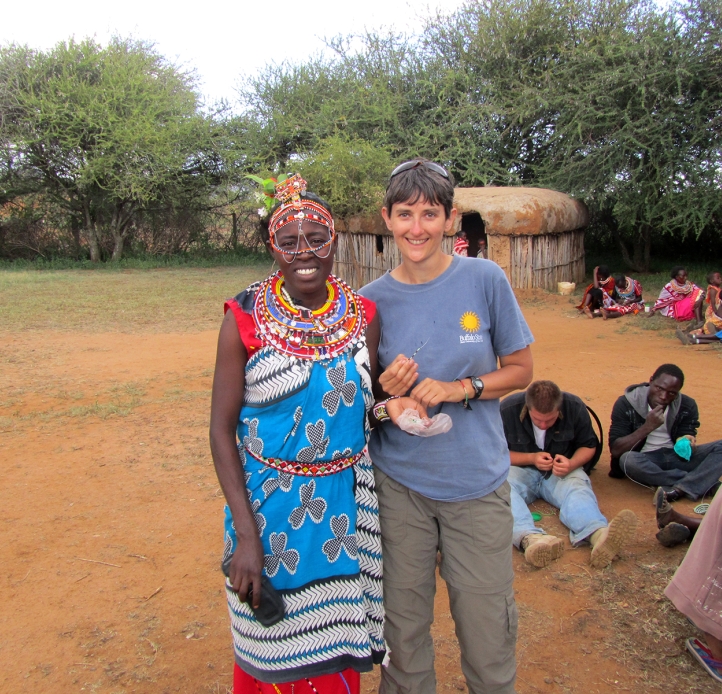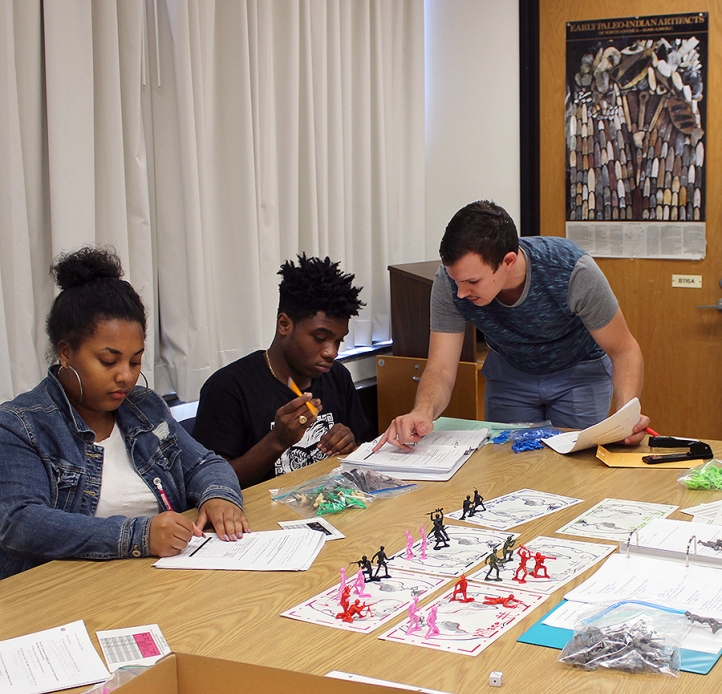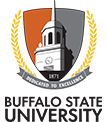
Fieldwork in Kenya

High Impact Practices in the Classroom
History of Anthropology at Buffalo State
The Anthropology Department at SUNY Buffalo State was founded as a joint sociology/anthropology department in the fall of 1966. The department became independent in the fall of 1970 through the aegis of Drs. June Collins and George Tomashevich, both cultural anthropologists. The department moved into its laboratory and office spaces in 1973 with the construction of the Classroom building. Hiring of faculty was vigorous in the early 1970s and soon three more cultural anthropologists (Drs. Jill Nash, Simeon Chilungu, and Don Mitchell), a biological anthropologist (Dr. Marie Geiss), and an archaeologist (Dr. William Engelbrecht) joined as tenure-track faculty. A folklorist, Dr. Lydia Fish, transferred to anthropology from English in 1977. They were joined by another cultural anthropologist, Dr. Dennis Gaffin, in 1989. Hiring was limited to adjuncts and the occasional full-time temporary lecturer until the 2000s.
In 2005, the department hired Dr. Lisa Marie Anselmi as Dr. Engelbrecht's successor upon his retirement. This hire renewed the department’s focus on Indigenous cultures and local archaeological sites as she conducts field and collections work in Western New York and Ontario. She was joined in 2009 by Dr. Susan Maguire, a specialist in military historical archaeology with field experience at Old Fort Niagara (Youngstown, NY) and in Canada.
The department added two scholars with broad international interests. Dr. Kimberly Hart, a cultural anthropologist working in Turkey, joined the department in 2007 and Dr. Julie Wieczkowski, a primatologist and biological anthropologist working with Tana River mangabeys in Kenya, joined the department in 2008.
These four tenured faculty members are supplemented by a small group of adjunct instructors to teach courses in three of the four fields of anthropology: archaeology, biological anthropology, and cultural anthropology. The department offers a BA degree and a minor. The department also hosts two interdisciplinary minors, forensic anthropology, the techniques for recovery and analysis of human remains for legal purposes, and Indigenous studies, an in-depth focus on the cultures, histories, languages, literatures, and contemporary issues of the Indigenous cultures of North, Central, and South America.
The department regularly offers students fieldwork experiences in archaeology, biological anthropology, and cultural anthropology and has connections with over 15 local community partners including the Buffalo Zoo, Buffalo History Museum, Forest Lawn Cemetery, and the Buffalo Museum of Science.

